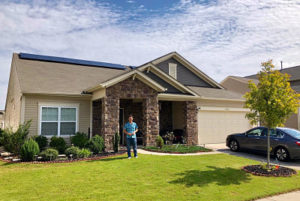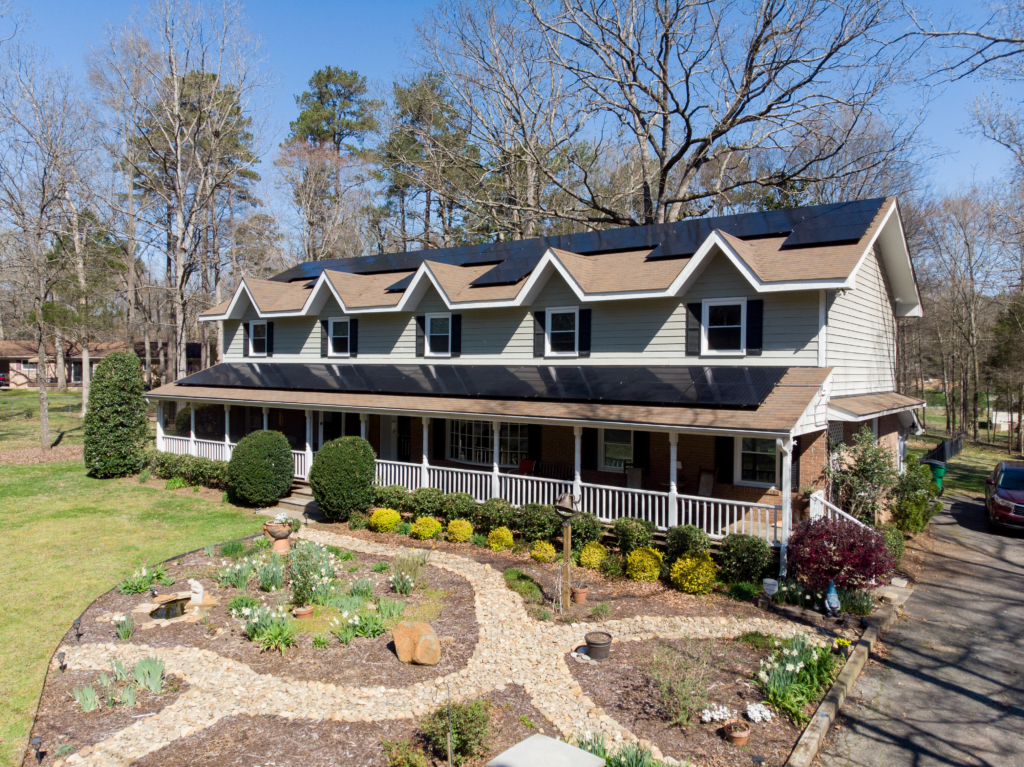Wai’s Solar Story
Built around 2014, Wai’s house combines contemporary touches with traditional Carolina style. Located near Carowinds, the neighborhood is convenient to both uptown Charlotte and the engineering and tech jobs of upstate South Carolina.
Wai is thrilled to be using solar energy. He’s gotten very familiar with the program that his utility company (Duke Energy) offers whereby any day when his solar energy system is producing more power than he needs, the excess gets sent onto the grid.
![]() Wai’s happy he gets credit on his electricity billing account for all that power at full retail value, because that’s accelerating his solar savings. Under this program, with a solar energy system 6.3 kilowatts in size Wai expects to have nearly 100% of his annual energy offset with solar.
Wai’s happy he gets credit on his electricity billing account for all that power at full retail value, because that’s accelerating his solar savings. Under this program, with a solar energy system 6.3 kilowatts in size Wai expects to have nearly 100% of his annual energy offset with solar.
With federal and utility incentives in place, great products available, and helpful solar professionals ready to assist you, why not do the same?
Check out other stories of real Renu Energy Solutions solar customers, and get your own solar home assessment.


Frequently Asked Questions About Solar for Your Home:
How exactly does going solar and a solar system itself work?
How many solar panels do I need for my home?
Roof-size/available space: When we look at the size of your roof and the space available, we gather data that tell us the maximum number of solar panels your home or site can hold and we even consider shading. We use a software “Suneye” which takes a 360 picture of your roof and we use this photo to determine if your home is a good candidate for solar.
Energy Usage: When we determine energy usage we look at your past electrical bills from over the course of a year to make sure your system isn’t too big or too small.
Your Budget: We take your budget seriously and most importantly, we want you to be satisfied with our services. We take your feedback on how much you want to spend so that we can size your system appropriately.
What is solar net-metering?
Does Duke Energy offer net-metering?
Curious about the cost of a home solar system?
Ready to Own Your Own Energy?
Speak to Us Today!
